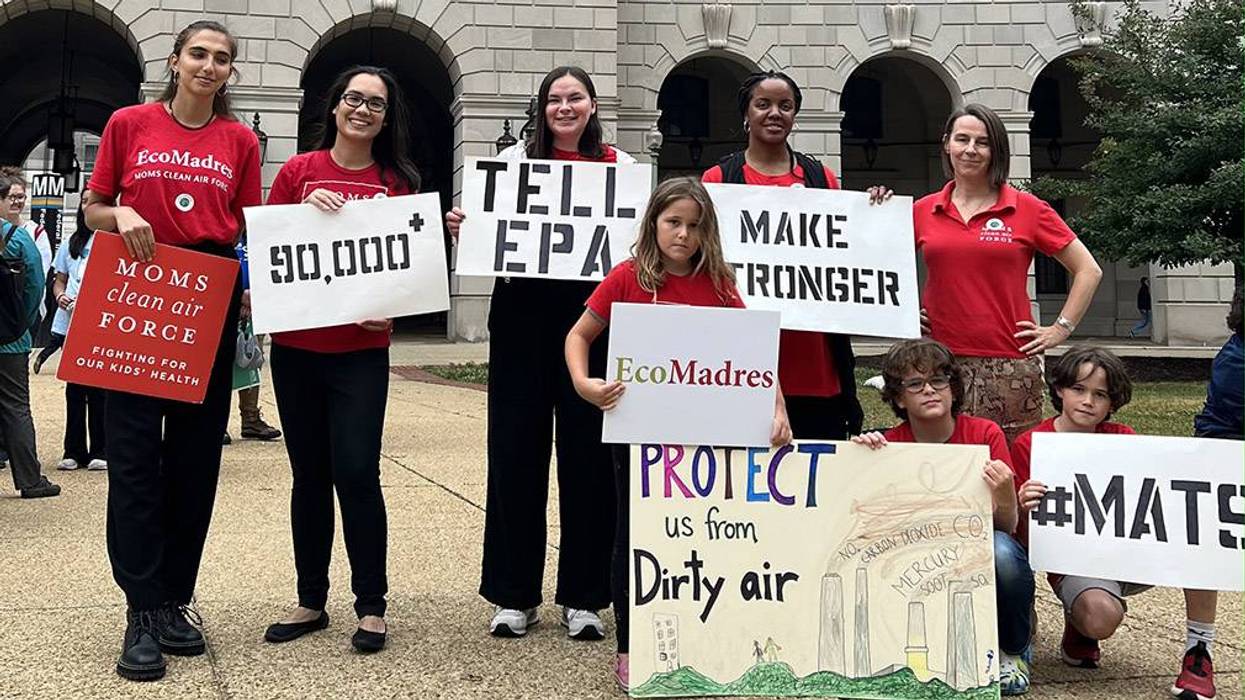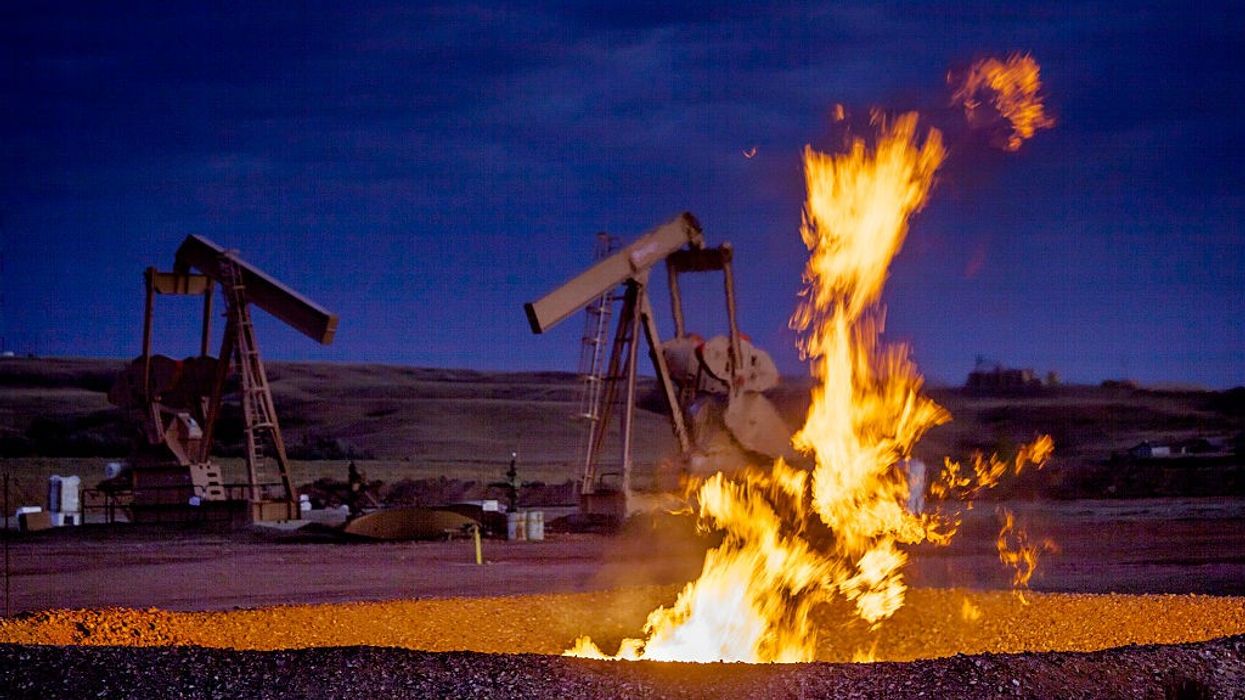'Direct Attack on the Health of Americans': Trump EPA Greenlights More Mercury Pollution
Sierra Club said the rollback "puts the public at greater risk of heart and lung disease, cancer, and even premature death, as well as causing severe neurological damage to fetuses and children.”
The Trump administration on Friday finalized its rollback of clean air regulations limiting mercury and other toxic pollutants from power plants, sparking condemnation from public health and environmental advocates who warned that the move will increase the risk of death or serious illness for millions of people in the United States.
The US Environmental Protection Agency (EPA) said it is repealing the Mercury and Air Toxics Standards (MATS), which were implemented during the Biden administration in order to protect people from mercury and other toxic air pollutants—including arsenic, lead, and chromium—from fossil fuel power plants.
The Trump administration contends that rescinding MATS will lower financial costs for utilities running older coal-fired plants during a period of rapidly rising demand from consumer and data centers powering artificial intelligence systems.
“The Biden-Harris administration’s anti-coal regulations sought to regulate out of existence this vital sector of our energy economy," EPA Administrator Lee Zeldin said Friday at the Mills Creek Power Plant, a coal-fired facility in Louisville, Kentucky. "The Trump EPA knows that we can grow the economy, enhance baseload power, and protect human health and the environment all at the same time."
However, the Sierra Club said Friday that "rolling back the new and more protective [MATS] will allow coal- and oil-fired power plants to emit more damaging pollution that puts the public at greater risk of heart and lung disease, cancer, and even premature death, as well as causing severe neurological damage to fetuses and children."
"According to the Sierra Club’s Trump Coal Pollution Dashboard, reversing the 2024 improvements and reverting to the 2012 standards will allow the dirtiest coal-fired power plants to emit 50% more mercury pollution," the group added. "In May 2025, the Trump administration exempted 68 power plants—including some of the biggest polluters in the nation—from MATS after soliciting exemption requests from big polluters over email."
Sierra Club Beyond Coal campaign director Laurie Williams called the MATS rollback "a direct attack on the health of Americans."
Last June, Sierra Club was a key part of a coalition of environmental and community groups that sued the Trump administration over the exemptions.
“These protections from mercury and other toxic pollution existed to protect communities from reckless polluters," Sierra Club campaign organizing strategist Bonnie Swinford said Friday. "By repealing these protections, the Trump administration is giving handouts to the coal industry elites—and waging war on the public’s ability to hold polluters accountable."
The Environmental Protect Network also decried the MATS repeal, saying it "will allow hundreds of facilities across 45 states to avoid meeting critical safety standards—jeopardizing public health, degrading ecosystems, and disproportionately harming children, pregnant people, and communities already overburdened by pollution."
"This is no way to make America healthy again."
Moms Clean Air Force co-founder and director Dominique Browning focused on the harms to children the rollback will inflict.
"The science is clear, and profoundly alarming. No amount of mercury is safe for babies’ developing brains," she said. "Mercury is a dangerous neurotoxin that damages the architecture of babies’ and children’s developing brains."
“The mercury rules were working," Browning argued. "Toxic emissions from US coal plants were dropping, and water bodies were getting cleaner. But now EPA Administrator Zeldin’s rollback... will allow coal plants to emit more toxic heavy metals like mercury, chromium, and lead—pollutants that contaminate our air, fall into our lakes and waterways, and poison our food supply."
"This is no way to make America healthy again," she added, referring to one of President Donald Trump's campaign slogans.
Julie McNamara, associate policy director at the Union of Concerned Scientists' Climate and Energy Program, said in a statement Friday: “Once again, the Trump administration is abandoning science and abandoning statute to give polluters a free pass. And once again, the Trump administration is doing so at the expense of people’s health."
National Resources Defense Council senior attorney John Walke asserted that "the coal industry is in decline, and dismantling clean air protections won’t bring it back."
“It will only lead to more asthma attacks, more heart problems, and more premature deaths, especially in communities living in the shadow of coal plants," Walke added. "We have a right to breathe clean air, and we will fight for that right even if Trump’s EPA refuses to.”
The EPA’s newest decision will allow power plants to emit more brain-damaging mercury and dangerous soot pollution, putting frontline communities at especially greater risk of heart and lung disease, cancer, and premature death.
[image or embed]
— NRDC (@nrdc.org) February 20, 2026 at 9:09 AM
Friday's EPA announcement followed the agency's repeal earlier this month of the endangerment finding, the Obama-era rule empowering climate regulation over the past 15 years that treated six greenhouse gases caused by burning fossil fuels as a single air pollutant for regulatory purposes.
Speaking at a Friday press conference in Washington, DC organized by Moms Clean Air Force, Talia, a local fourth grade student, said that “climate disasters are becoming more common, and they’re hurting our planet, our health, and the future of kids like me."
“Adults in the government are supposed to protect kids from climate change and not ignore it," she said, adding in a message to Trump officials that "we are taught to listen to scientists and doctors and moms—why don’t you listen to them?”


